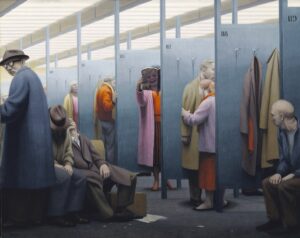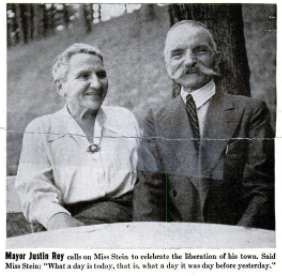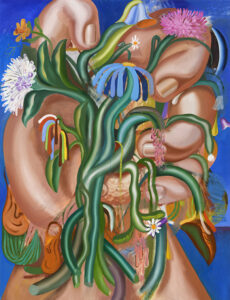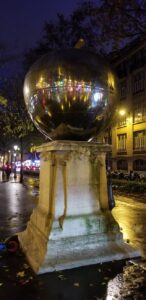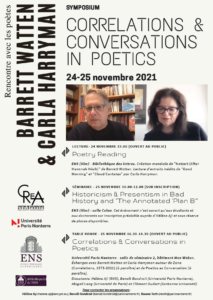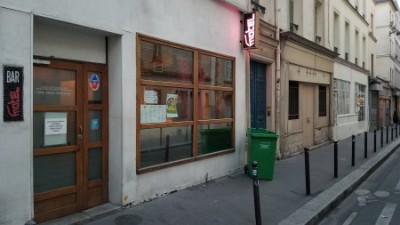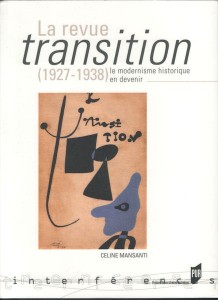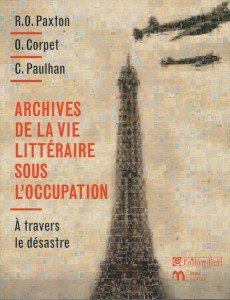Marxism, at the end of the 19th century and the beginning of the 20th century, admitted that in capitalist societies mankind had not reached its full possibilities for development and self-realization. . . . [What] model did Marxism use to conceive, project, and eventually realize that human nature? It was, in fact, the bourgeois model: sexuality of a bourgeois type, family of bourgeois type, aesthetic of bourgeois type. —Michel Foucault, “Human Nature: The Chomsky-Foucault Debate” (1971)
I am in a medical waiting room in Novi, Michigan, reading the politics of dream in Les Vases communicants. On a large screen unfold tedious details of home improvement projects, finding new spatial arrangements, knocking out windows, sanding floors. Three older women are facing the screen, representative of Novi and its majority suburban demographics. They are possibly X voters, I imagine. Interrupting the quotidian program are three election ads, two paid for by Y and one by X. The space of the waiting room becomes a scene of unfolding dreams. In the first, X brags that he only hires the best in the business. We next meet a series of former subordinates, from A to B. All are white male counter authorities, having once believed in but turned from X. The message is impactful and distressing, a diremption in the structure of legitimacy. It provokes displeasure and crisis that cannot be revealed among the three women, who rigidly stare straight ahead. The next features a sympathetic woman they might identify with: an older white woman in an ordinary scene. Social security will be at risk under X, she explains. She finishes her argument with a risqué turn of speech: he will give the middle finger to the middle class. The three women’s basic livelihood appears at risk, after the legitimacy crisis. The third ad feature a younger women who claims the federal government, under Y, will pay for gender reassignment care. She is a mother and there is an imagined threat to her obligation to care for her child in the way she believes. The first two messages attack certainty in order to draw out and question a core belief. The last preserves a core belief by promoting an untenable fantasy. At the bottom of the dream is a nonexistent object that the three messages attempt to disclose. How much of the disclosure itself—seeing the ad content as analogous to a dream on waking—can be retained on waking; what does the erosion of memory mean for the core belief? In two cases the core belief is unsettled; in the latter, it is preserved as inaccessible fantasy, what people may think but will not admit to, the basis for a turn to fascism in a democracy. My reading of Les Vases communicants extends, of necessity, from 1932 to this scene.
“The Best People,” Harris campaign ad: view here
“Kamala Is for They/Them. I am for you” ad: view here
